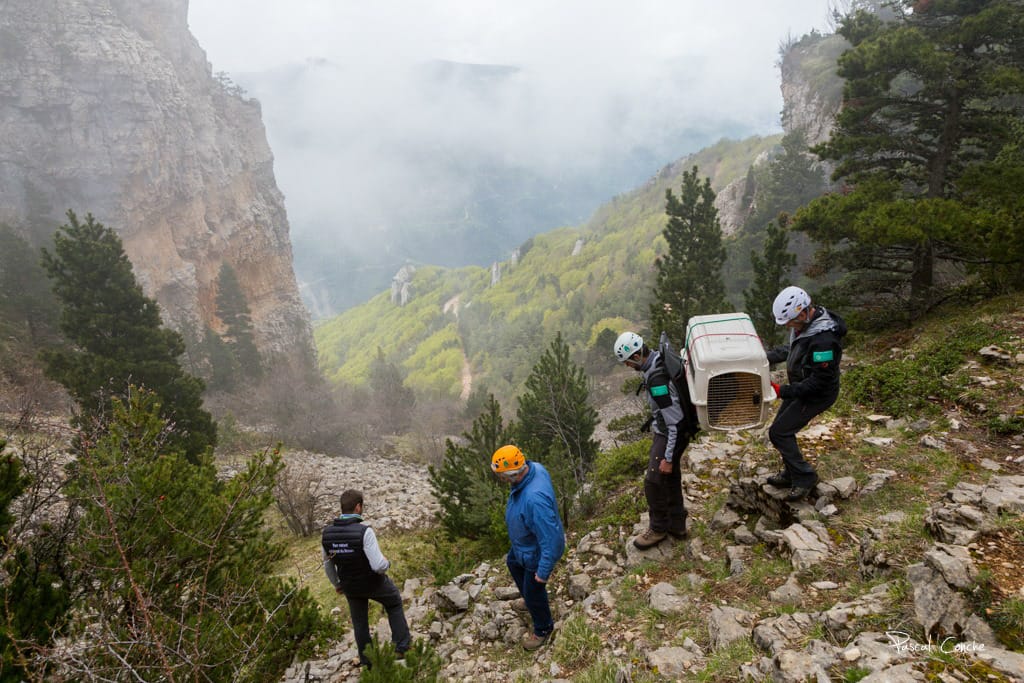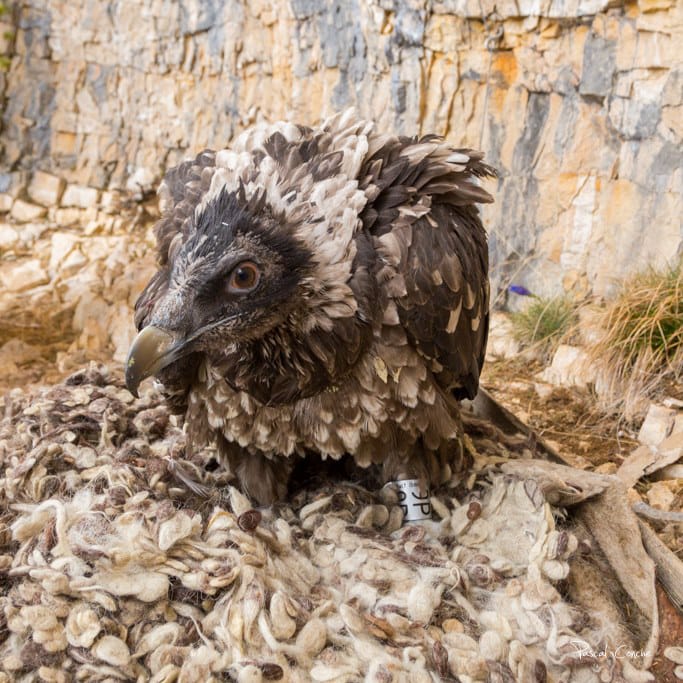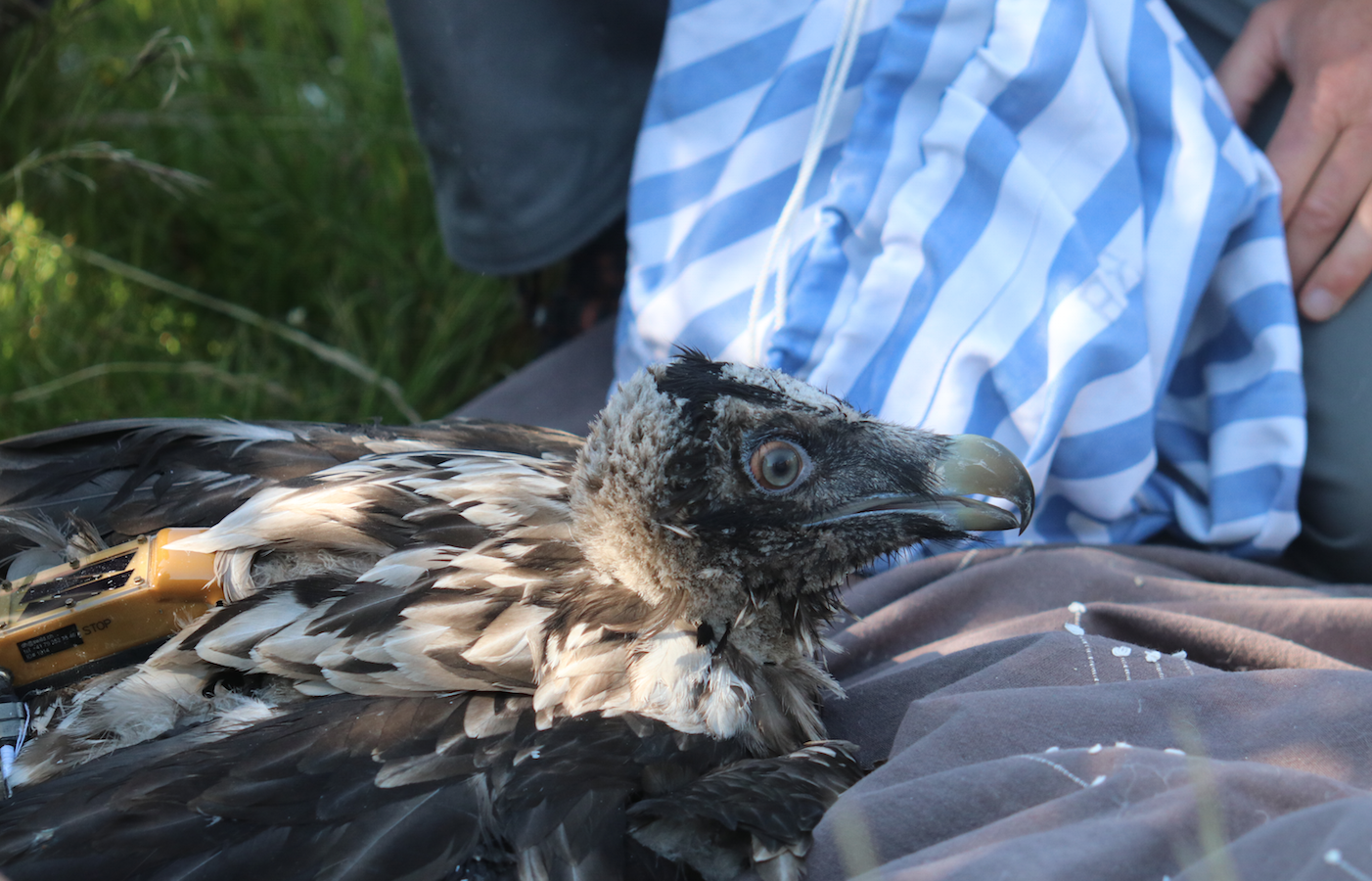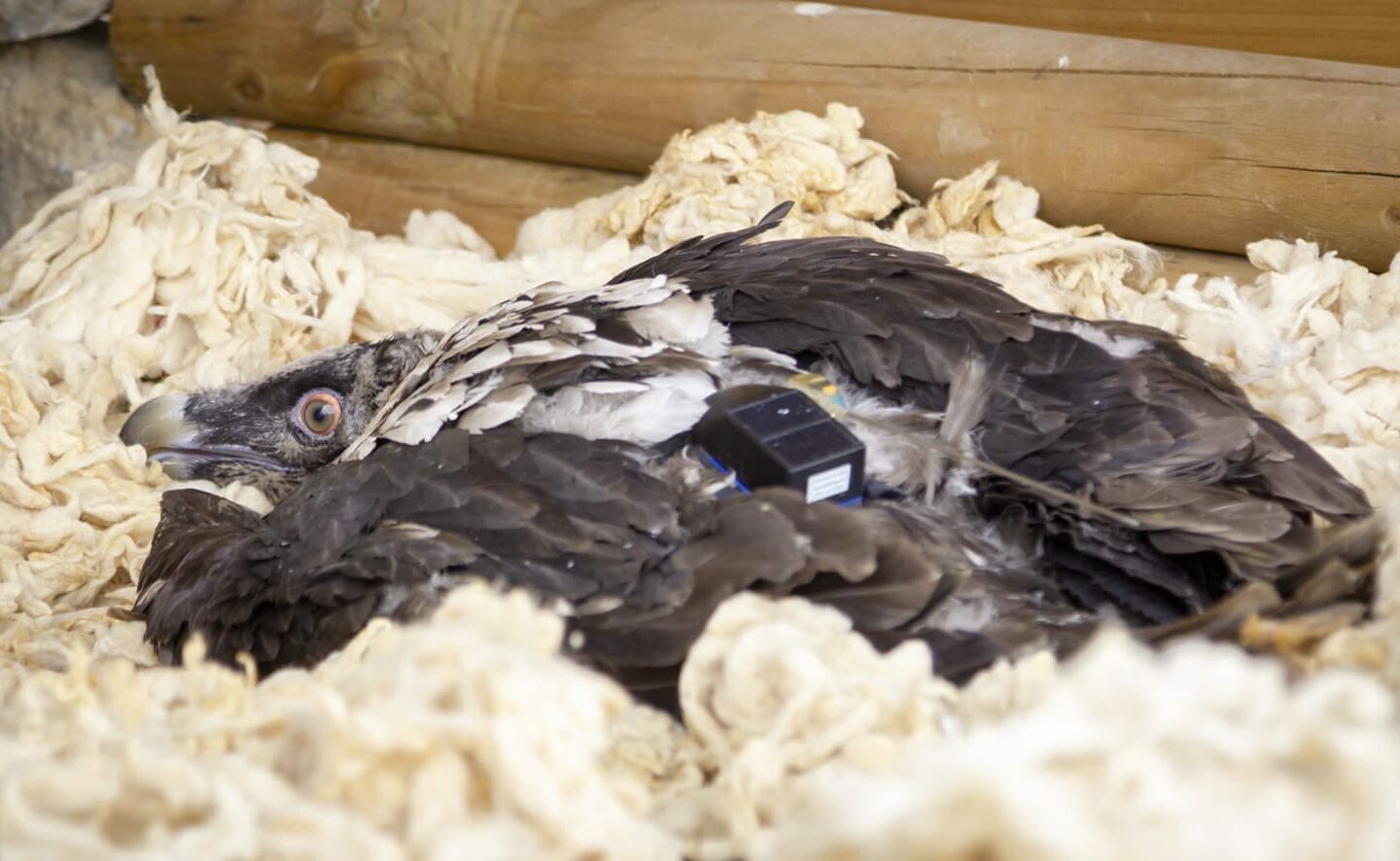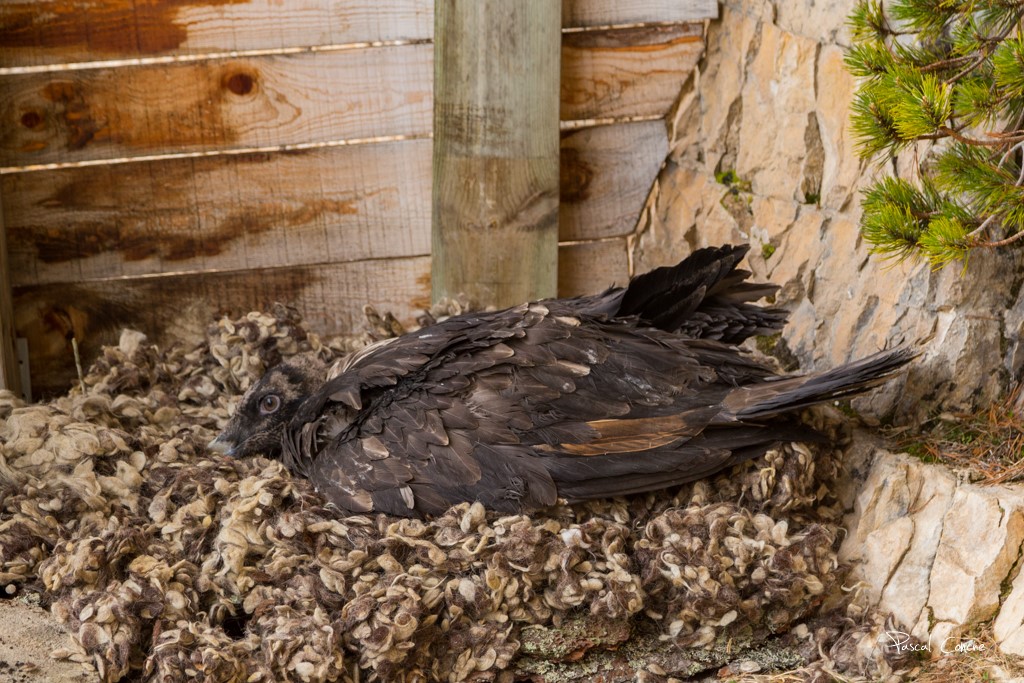Back in 1978, conservation pioneers across Europe came together with a dream to bring the Bearded Vulture back to the Alps. For this dream to become a reality, they devised an ambitious course of action, which involved integrating the few remaining Bearded Vulture individuals from zoos into a captive breeding programme to produce chicks and release them into the wild. The first releases took place in 1986 at Hohe Tauern National Park, Austria, and in 1997 the first breeding pair successfully raised a chick in the wild in France. These pioneers officially launched the Foundation for the Conservation of the Bearded Vulture (FCBV) in 1992 to reinforce their efforts in protecting this iconic mountain species. At this time, 49 birds living in captivity and belonging to the Frankfurt Zoological Society were donated to the FCBV, the predecessor of the Vulture Conservation Foundation (VCF).
Since the 1980s, 340+ juvenile Bearded Vultures were released to the wild in Europe, including 230+ in the Alps and Pre-Alps. Today, there are around 300 Bearded Vultures, including 58 breeding pairs, across the Alps. This reintroduction project has sparked the imagination and gathered the support of many stakeholders across the Alpine chain and is considered one of the best wildlife comeback stories of all times!
After gaining invaluable expertise working with this unique vulture species, the FCBV became the Vulture Conservation Foundation (VCF) in 2009, extending its conservation efforts to protect all of Europe’s vulture species — Bearded, Cinereous, Egyptian and Griffon Vultures. Today, the VCF is an international organization that leads the reintroduction of the Bearded Vulture in Europe and has extensive experience in the captive breeding, reintroduction, restocking, and conservation of vultures in their natural habitats. It is currently involved in many large-scale vulture conservation projects across Europe, from Iberia to the Alps and the Balkans.

